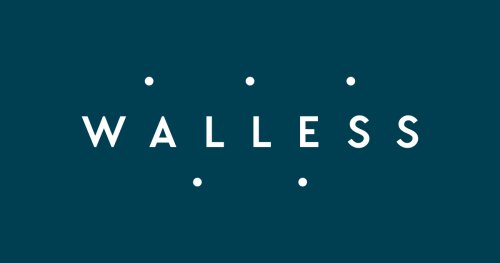Best Fintech Lawyers in Vilnius
Share your needs with us, get contacted by law firms.
Free. Takes 2 min.
List of the best lawyers in Vilnius, Republic of Lithuania
About Fintech Law in Vilnius, Republic of Lithuania
Vilnius, the capital city of Lithuania, is rapidly emerging as a leading hub for financial technology (Fintech) in the Baltic region. Known for its supportive regulatory environment, Vilnius offers a robust infrastructure for Fintech companies. Lithuania has been ranked highly on several international indices for ease of doing business, and its commitment to fostering innovation makes it an attractive destination for Fintech startups. With a specialized Fintech sandbox and a conducive regulatory framework, Vilnius is well-positioned to support various Fintech activities such as digital banking, payments, crypto-assets, and crowdfunding.
Why You May Need a Lawyer
If you are involved in a Fintech business in Vilnius, you may find yourself in various situations requiring legal expertise. Common scenarios include navigating regulatory compliance, ensuring data protection, managing intellectual property rights, and handling financial transactions. You might also need legal help in drafting contracts, representing your company in disputes, or addressing issues related to blockchain and cryptocurrency regulations. A lawyer well-versed in Fintech law can guide you through the complexities of the legal landscape, ensuring that your business operations are seamless and compliant with local and international laws.
Local Laws Overview
In Lithuania, the Fintech sector is primarily governed by a combination of national regulations and European Union directives. The Bank of Lithuania plays a crucial role as a regulatory authority, overseeing licensing and compliance for Fintech entities. Key aspects of local laws relevant to Fintech include the Licensing Regulations under the Law on Payments Law, EU General Data Protection Regulation (GDPR) compliance, and Anti-Money Laundering (AML) requirements. Additionally, businesses dealing with digital currency need to understand the legal framework surrounding cryptocurrencies, which is closely monitored by local authorities.
Frequently Asked Questions
What is the process for obtaining a Fintech license in Vilnius?
To obtain a Fintech license in Vilnius, you need to apply through the Bank of Lithuania, demonstrating compliance with local and EU regulatory requirements, including capital adequacy, security measures, and operational planning.
Are there specific regulations for cryptocurrencies in Vilnius?
Yes, cryptocurrencies are subject to specific regulations in Lithuania. Businesses dealing with crypto assets must comply with Anti-Money Laundering directives and registration requirements with the Bank of Lithuania and other relevant authorities.
How does Lithuania's regulatory environment support Fintech innovation?
Lithuania supports Fintech innovation through initiatives like the regulatory sandbox, which allows businesses to test innovative products in a controlled environment, and a favorable licensing regime that expedites the process for launching Fintech activities.
What GDPR considerations should a Fintech company in Vilnius be aware of?
Fintech companies must adhere to the EU's GDPR, ensuring transparent data processing, obtaining consent for data collection, implementing data protection measures, and providing users with access and rectification rights to their data.
What are the tax implications for Fintech companies in Vilnius?
Lithuania offers a competitive tax regime, with a standard corporate tax rate and incentives for technology startups. Fintech companies should consider VAT implications and tax treaties, particularly for cross-border services.
Is crowdfunding regulated under Lithuanian law?
Yes, crowdfunding is regulated in Lithuania. Operators must comply with specific rules, including obtaining necessary permits and ensuring transparency and investor protection in line with EU regulations.
What is the role of the Bank of Lithuania in Fintech regulation?
The Bank of Lithuania serves as the principal regulatory body overseeing Fintech, including licensing, regulatory compliance, and ensuring the stability and integrity of financial services.
Are there incentives for foreign Fintech companies to set up in Vilnius?
Lithuania offers various incentives for foreign Fintech companies, including a streamlined licensing process, access to a skilled workforce, and integration into the EU financial market, making Vilnius an attractive location.
What legal challenges do Fintech companies in Vilnius commonly face?
Common legal challenges include navigating complex regulatory requirements, ensuring compliance with data protection laws, managing cross-border transactions, and protecting intellectual property rights.
Can Fintech companies in Vilnius operate across the EU?
Yes, companies licensed under Lithuanian law can potentially passport their services throughout the EU, allowing them to operate in any EU member state, subject to local notification requirements.
Additional Resources
For further assistance, consider reaching out to the following resources: Bank of Lithuania for licensing and regulatory guidance, Invest Lithuania for business setup information, and the Lithuanian Fintech Association for networking and industry insights.
Next Steps
If you require legal assistance in the Fintech field, consider contacting a reputable law firm specializing in Fintech law in Vilnius. Schedule a consultation to discuss your specific needs, and ensure you have all necessary documentation and a clear understanding of your business objectives. Engaging with local experts and leveraging available resources will help you navigate the legal landscape effectively.
Lawzana helps you find the best lawyers and law firms in Vilnius through a curated and pre-screened list of qualified legal professionals. Our platform offers rankings and detailed profiles of attorneys and law firms, allowing you to compare based on practice areas, including Fintech, experience, and client feedback.
Each profile includes a description of the firm's areas of practice, client reviews, team members and partners, year of establishment, spoken languages, office locations, contact information, social media presence, and any published articles or resources. Most firms on our platform speak English and are experienced in both local and international legal matters.
Get a quote from top-rated law firms in Vilnius, Republic of Lithuania — quickly, securely, and without unnecessary hassle.
Disclaimer:
The information provided on this page is for general informational purposes only and does not constitute legal advice. While we strive to ensure the accuracy and relevance of the content, legal information may change over time, and interpretations of the law can vary. You should always consult with a qualified legal professional for advice specific to your situation.
We disclaim all liability for actions taken or not taken based on the content of this page. If you believe any information is incorrect or outdated, please contact us, and we will review and update it where appropriate.














